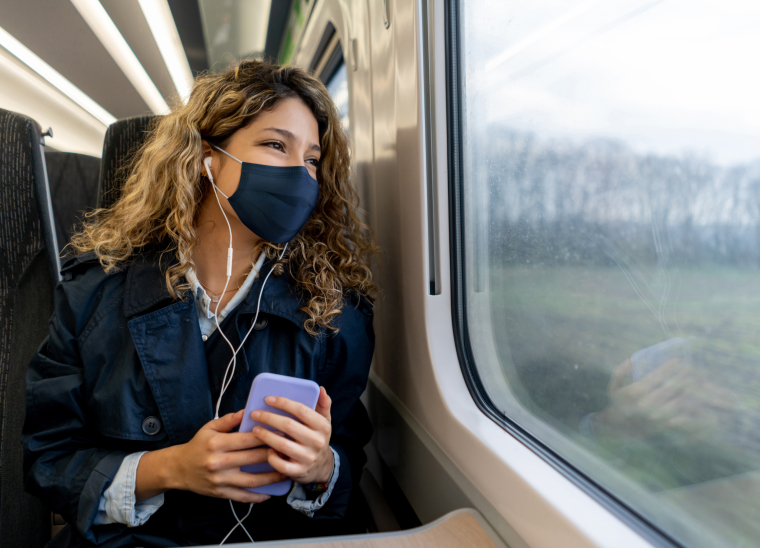Do you have travel plans for the upcoming holiday season? You’re not alone. Now that the U.S. ban on international travel has been lifted, experts are anticipating a surge in both international and domestic travel in coming weeks. AAA predicts 53.4 million people will travel for the Thanksgiving holiday, up 13% from 2020. This brings travel volumes within 5% of pre-pandemic levels in 2019, with air travel up 80% over last year.
Bolstered by the protection offered by the COVID-19 vaccine and the current rollout of booster shots, many travelers are experiencing a renewed desire to travel to see friends and family this year. However, with the proliferation of breakout cases, even among the fully vaccinated, some travelers may still have hesitations about hitting the skies (or railroads) during the holiday season.
According to Dr. Heather Towery, Eden’s VP of Clinical Strategy and Enterprise Partnerships, here are some COVID-19 safety tips to consider before you book your holiday travel:
GET YOUR BOOSTER SHOT
It’s smart to get a booster shot — and most American adults are now eligible to receive one. Boosters help remind our immune system what COVID looks like so it can be on the lookout and ready to react if we should get infected. Two to three weeks after your booster will provide the best protection against COVID-19.
BOOSTER SHOTS WILL NOT IMPACT THE RESULTS OF A COVID-19 TEST
There is no mandatory testing for those fully vaccinated against COVID-19. If you need a COVID PCR test prior to international travel, a booster will have no effect on your test results.
SOCIALIZING WITH UNVACCINATED INDIVIDUALS CAN STILL PUT FULLY VACCINATED PEOPLE AT RISK OF GETTING COVID-19
Being fully vaccinated protects against severe disease, hospitalization, and death, but it does not protect against acquiring COVID-19. If you have to be in a room with an unvaccinated individual, wear a mask and practice social distancing.
IF POSSIBLE, GET TESTED AFTER TRAVELING
Those who interact regularly with a family member or friend who may be immunocompromised or at high risk of contracting COVID-19 may still want to consider getting a COVID-19 test after traveling. Wait five days after returning from travel to get a PCR or rapid antigen test. Once you receive a negative result, you can make arrangements to socialize safely.
LIMIT YOUR EXPOSURE ON PLANES AND TRAINS
Wear your masks (preferably surgical) on the plane and try not to eat and drink around others — the more exposure you have to unmasked folks, the higher the risk of coming into contact with a COVID-positive person.
Disclaimer: This information is based on current resources available and is subject to change. This document and its contents are provided for informational purposes only, and not intended to be, and should not be understood or treated as, a substitute for professional medical advice around COVID-19, its risks or symptoms, or to take the place of any local, state and national laws and guidelines around COVID-19. Always seek the advice of a physician or other qualified health provider with any questions you may have regarding a medical condition.





